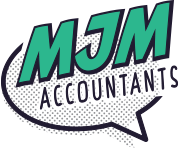Getting the right business structure in place is one of the biggest business decisions you can make throughout your business lifecycle.
What you decide will depend on many factors, for example, the type of business you have, whether you plan to hire employees, join forces with a partner and how you plan to develop your business in the long term.
Unfortunately, without the right business advice, it can be an easy mistake to incorrectly structure your business.
Most people believe the easiest way to protect their assets is to set up a Company. Yet a company structure can be inefficient at minimising tax and can also result in higher compliance costs and higher income taxation than otherwise required.
When set up correctly, Trusts can offer more advantages compared with other structures. For example a trust can continue to exist even if the person running it passes (unlike sole traders or partnerships) and it gives more protection to assets. It can be effective in restricting exposure to personal assets in certain situations. Discretionary trusts can also allow flexibility in where, and how much of, the trust’s income is distributed.
The devil is in the detail when you consider a Partnership. You and your partners are responsible for all the debts in the partnership, even if your partner was the one who got the partnership into debt. So before entering into a partnership, meet with your accountant and a business lawyer to draw up formal agreements.
Running as a sole trader is probably the easiest and most cost-effective way to structure a business (when compared to a trust or company). You report the business’s profits on your own tax return and pay tax at individual rates, not company tax rates.
As your business experiences growth, you may even need to consider changing your structure.
Want to know which structure will best suit your needs?
As always, our team is here to help. If you would like assistance or have a question, contact us.
